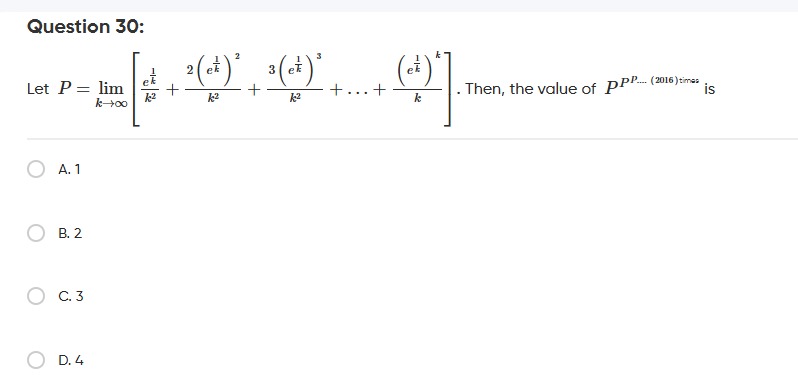Question
Question: Let $P = \lim_{k \to \infty} \left[ \frac{e^{\frac{1}{k}}}{k^2} + \frac{2(e^{\frac{1}{k}})^2}{k^2} +...
Let P=limk→∞[k2ek1+k22(ek1)2+k23(ek1)3+...+k2k(ek1)k]. Then, the value of PPP...(2016)times is

A
1
B
2
C
3
D
4
Answer
1
Explanation
Solution
The limit can be rewritten as P=limk→∞k21∑n=1kn(ek1)n. This is a Riemann sum for the integral ∫01xexdx. Evaluating the integral using integration by parts: ∫01xexdx=[xex]01−∫01exdx=(1⋅e1−0)−[ex]01=e−(e1−e0)=e−(e−1)=1. Thus, P=1. The expression PPP...(2016)times becomes 111...(2016)times, which is equal to 1.
